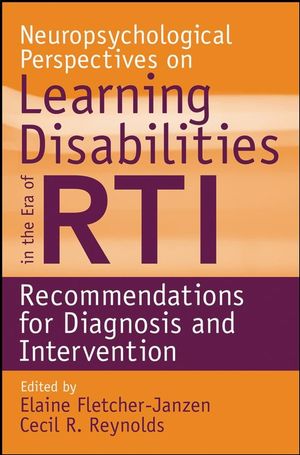Neuropsychological Perspectives on Learning Disabilities in the Era of RTI: Recommendations for Diagnosis and InterventionISBN: 978-0-470-22527-1
Paperback
352 pages
February 2008
 This is a Print-on-Demand title. It will be printed specifically to fill your order. Please allow an additional 10-15 days delivery time. The book is not returnable.
|
||||||
An insightful look at the role of neuroscience and neuropsychology
as it relates to Response to Intervention (RTI) in learning
disability diagnosis, treatment, and policy reform
Neuropsychological Perspectives on Learning Disabilities in the Era of RTI is a revolutionary new volume presenting the latest research—in question-and-answer format—from leading scholars about the contributions of neuroscience and neuropsychology as it relates to Response to Intervention (RTI) in learning disability identification, diagnosis, and recommended interventions.
This collective work includes contributions from more than thirty neuroscientists, neuropsychologists, clinical psychologists, and school psychologists with training in brain-behavior relationships, who explore the answers to questions including:
Neuropsychological Perspectives on Learning Disabilities in the Era of RTI is a revolutionary new volume presenting the latest research—in question-and-answer format—from leading scholars about the contributions of neuroscience and neuropsychology as it relates to Response to Intervention (RTI) in learning disability identification, diagnosis, and recommended interventions.
This collective work includes contributions from more than thirty neuroscientists, neuropsychologists, clinical psychologists, and school psychologists with training in brain-behavior relationships, who explore the answers to questions including:
- How do you reconcile RTI as a means of diagnosis of learning disability with knowledge from the clinical neurosciences??
- What do you think neuroscience has to offer laws and policies associated with learning disability determination?
- What do you think neuroscience has to offer the assessment and identification of learning disabilities?
- What role does neurocognitive science play in designing interventions in the context of RTI?
- What role does neuropsychology have to play in the diagnosis of learning disability?



